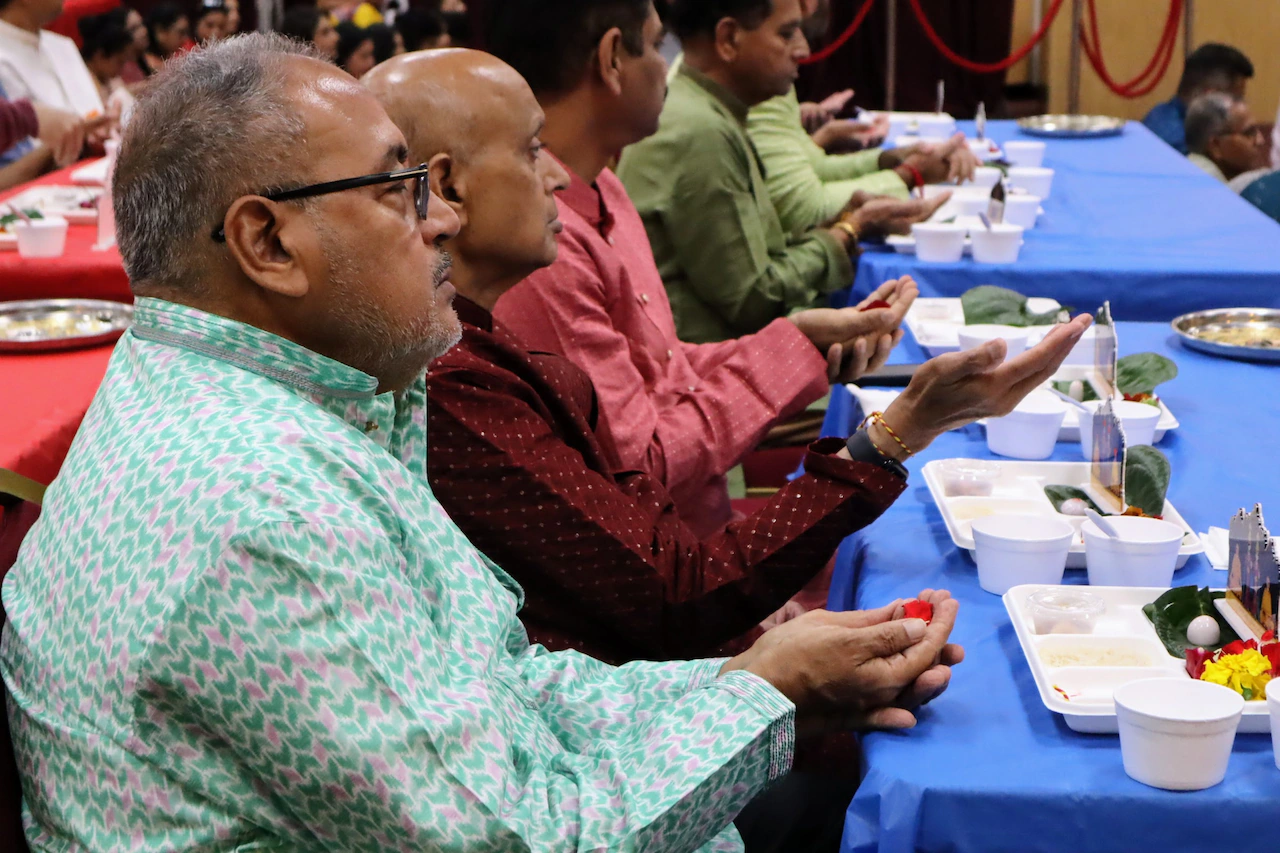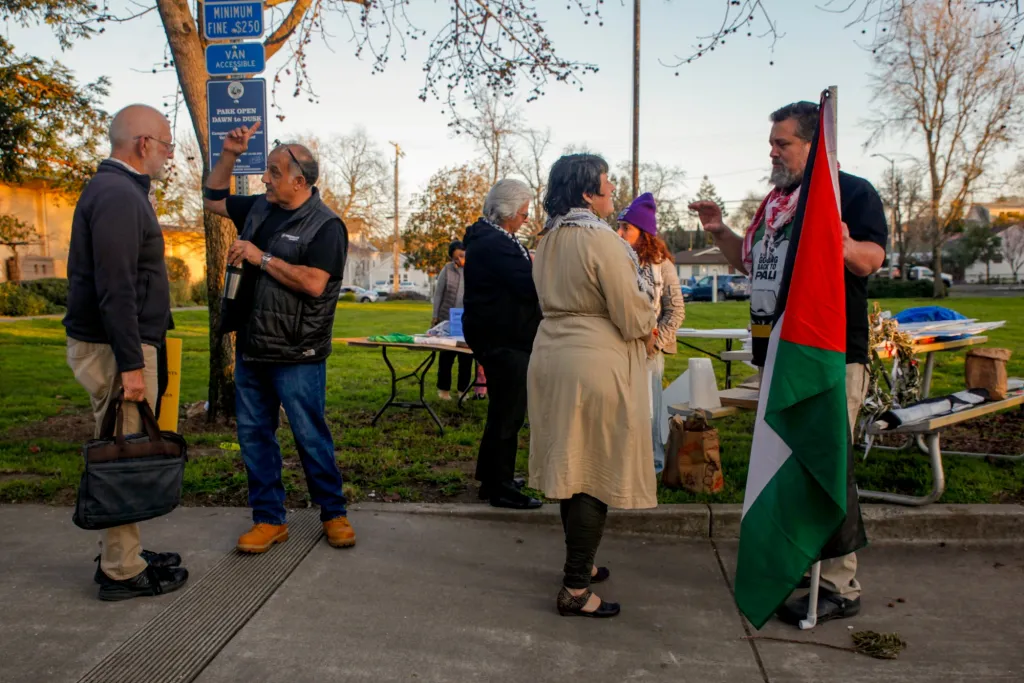Copyright The Oregonian

Beginning around 5 p.m. Monday, children and adults trickled into a large, brightly lit hall at the BAPS Swaminarayan Hindu Mandir in Tigard. Tables were neatly arranged with bright tablecloths and trays holding rice grains, flowers, candles and other items used in a centuries-old ritual marking the Hindu New Year. By the time the ceremony began at 5:30 p.m., more than 250 people had gathered for Chopda Pujan, a sacred Diwali tradition in which devotees sanctify their account books, ledgers and even laptops for the year ahead. “It’s really a journal of your positives and negatives for the year,” said Avi Patel, communications and outreach coordinator for the temple. “What you’re doing is symbolically closing those books and blessing the books for the upcoming year. The emphasis behind this is that you’re praying to Lord Ganesh and Goddess Lakshmi to bless you with prosperity, honesty and wisdom in the upcoming year.” Chopda Pujan is performed on the third day of Diwali, the actual day of the festival. The day is often seen as a bridge between material and spiritual well-being. Traditionally, business owners bring their financial ledgers to be blessed before starting a new accounting year. In modern times, the practice has expanded: Students bring their school notebooks, and professionals often place their laptops or tablets on the table, each item representing the work they hope will flourish in the months to come. The BAPS Swaminarayan Hindu Mandir, part of an international network of temples within the Bochasanwasi Akshar Purushottam Swaminarayan Sanstha organization, has been a fixture in Tigard since 2004. With more than 200 regular members, it serves as both a spiritual center and a cultural hub for the area’s Hindu community. Patel said larger celebrations such as Diwali often draw more than 1,000 visitors. On Oct. 18, just two days before Chopda Pujan, the temple hosted its Annakut festival, where hundreds of vegetarian dishes, a symbol of the year’s harvest, were offered to God and later shared among the congregation. “Over a billion people across the world celebrate this festival,” Patel said. “It’s not only Hindus, but Hindus, Sikhs and also Jains and Buddhists celebrate Diwali… the celebration of light symbolizing the triumph for good over evil. It’s a time for joy and festivities.” In an upstairs room at the center, a group of children sat in a smaller room, participating in a condensed version of the ritual led by volunteers. They each brought their own school notebooks or tablets to bless for the academic year. Bijal Patel, an outreach volunteer for BAPS, attended the event with her two daughters. Her youngest daughter participated in the children’s ritual. “It’s like sowing the seed,” Bijal said. “As they get older, we’ll fertilize that with giving them all of the teachings, and then they’ll hopefully understand that this is a centuries old tradition that they now have the duty to keep alive so that their children can enjoy it in the future as well.” After both rituals were performed, the Chopda Pujan ceremony concluded with an arti, a traditional offering of light using a small flame. Families then gathered for a communal meal of traditional Indian vegetarian dishes: puri, deep-fried flat bread; bataka nu shaak, spiced boiled potatoes; channa shaak, chickpeas in a tomato sauce gravy; and daal, a mix of tomatoes, pigeon peas and lentils. The meal served as a reminder of the holiday’s significance in Hindu tradition. “It is a time of gathering for family and friends,” Avi said. “All of these rituals have tremendous spiritual and emotional ties for folks because it is a way for them to connect with their family, with their friends, with their community at large, and spread the message of unity and love and prosperity.” Bijal echoed that sentiment, emphasizing the temple’s message of openness and inclusion. “This isn’t just for the Indian community,” she said. “It’s for anyone seeking spirituality or a sense of belonging.” This year’s Diwali theme at BAPS was the “Festival of Unity.” “Where there is unity, there is light,” Avi said. “Especially in times of our current climate and political divisions and challenges, there is this sense of unity that we must still have, and we want to definitely spread that.” Faith and cultural connections How Oregon became first state to earn ‘accessibility verified’ travel designation Esta panadería de Wood Village ofrece una amplia selección de pasteles mexicanos Screening aims to ‘discover the possibility of what Portland could be’ How to celebrate Indigenous Peoples Day 2025 in Portland and beyond An upcoming Jewish bakery is bringing the ‘babka renaissance’ to Portland



